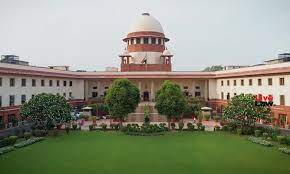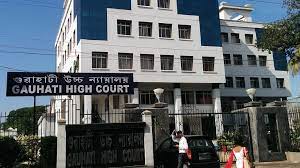The dispute, pertaining to recovery of deductions of monthly tariff by the respondent, gave rise to proceedings under the Electricity Act, 2003 (Para 1)
The limited aspect, on which relief was granted by this Court qua part of the amount, can be summarized as under:
i. The Appellant is held entitled to the washing cost of coal, the transportation from the mine site via washing of coal to the project site inclusive of cost of road transportation for the period where it was necessary.
ii. The Gross Calorific Value (“GCV”) of the coal would have to be taken at the project site.
iii. The amount payable to the Appellant as the consequences thereof be remitted within a period of three months from the date of this order, failing which it would carry interest @ 12 per cent per annum (simple interest). (Para 2)
Despite the aforesaid proceedings, the appellant (Nabha Power Limited) was not paid the amount and, thus, they filed Contempt Petition no.1277- 1278/2018 (referred to as the ‘First Contempt Petition’) aggrieved by the nonrelease of payment. (Para 5)
The aforesaid would, thus, show that vide order dated 07.08.2019 the Court made it abundantly clear that the judgment should be followed in letter and spirit and disposed of the Contempt Petitions with a direction to pay the amount as a result of the order within a period of eight weeks from the date of the order. Thus, this endeavour of the respondent to delay and cause confusion of the amount to be determined for payment also did not succeed. (Para 6)
The Second Contempt Petition came to be decided on 09.03.2021 opining that the respondent was guilty of contempt by not complying with the order dated 05.10.2017. In effect, this Court granted an imprimatur to the calculations of the outstanding dues as understood by the appellant as on 09.03.2021 and directed the respondent to make payment of the same in two equated installments on or before 31.03.2021 and 31.05.2021. (Para 11)
The submission of the appellant was that this is the same wine in a new bottle. All these issues had been dealt with earlier in the judgment as well as in the various applications filed by the respondent. They referred to the reply filed in the First Contempt Petition as well as the Second Contempt Petition and the MAs filed by the respondents. (Para 19)
We find the same thing being raked up again and again only as an endeavour to not make payments, till in the Contempt proceedings they were compelled to make payment. (Para 20)
We have, thus, no hesitation in coming to the conclusion that the impugned order, innocuous as it may seem, is not sustainable and this is yet another endeavour of the respondent to wriggle out of its obligation under the judgment dated 05.10.2017, repeatedly explained by various orders. This kind of endeavour can neither be appreciated nor left without consequences thereof. (Para 23)
We, thus, feel that some example must be set in such cases and the appeals are liable to be allowed with costs, which were actually incurred by the appellants. It was the aforesaid, which was the reason for us to call upon the parties to file the actual bill of costs. (Para 24)
We consider to modulate and quantify the cost in favour of Nabha Power Limited and Talwandi Sabo Power Limited at Rs.40.00 lakhs and Rs.25.00 lakhs, respectively. (Para 25)
SUPREME COURT OF INDIA
2023 STPL(Web) 321 SC
[2023 INSC 883]
Nabha Power Limited Vs. Punjab State Power Corporation Limited
Civil Appeal No. 2425 of 2023 with Civil Appeal No. 2426 of 2023-Decided on 9-10-2023
https://stpllaw.in/wp-content/uploads/2023/10/2023-STPLWeb-321-SC.pdf








